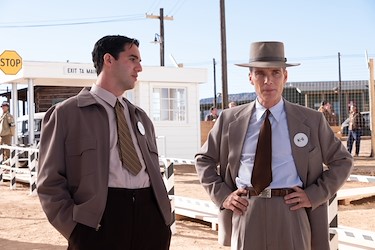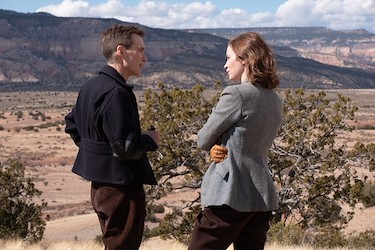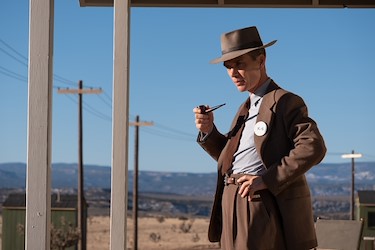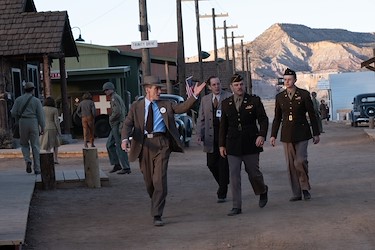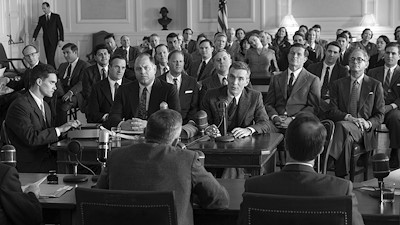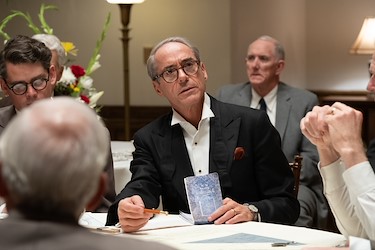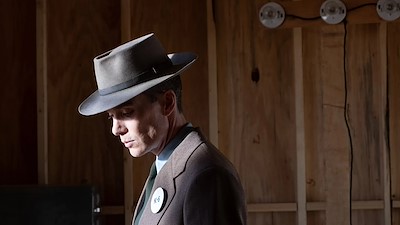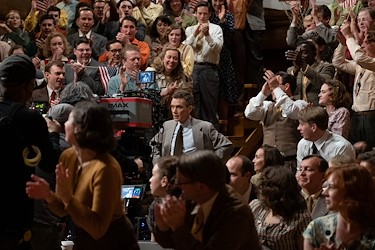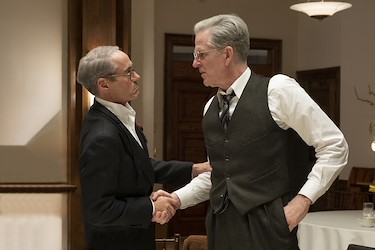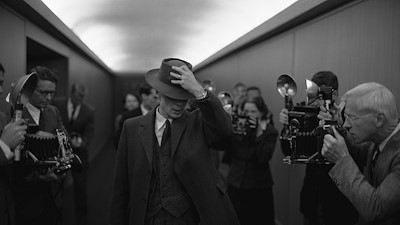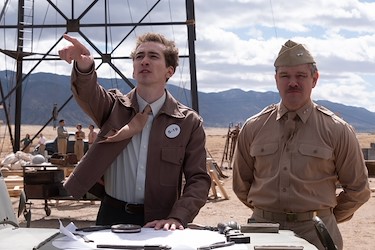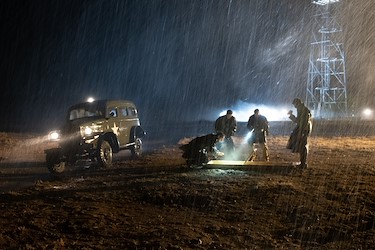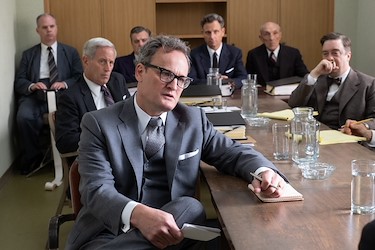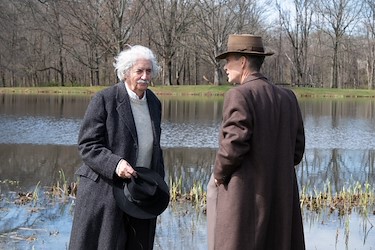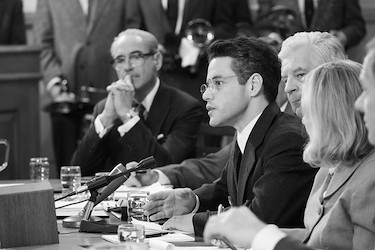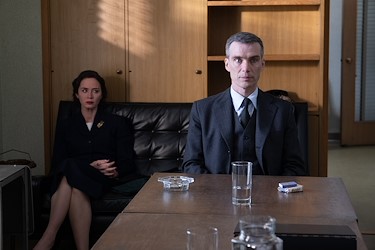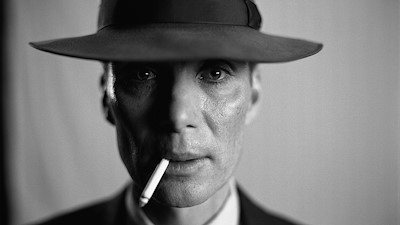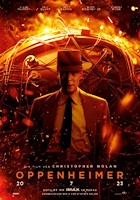Oppenheimer
Christopher Nolan, USA, UK, 2023o
During the Second World War, the American physicist Robert Oppenheimer is given the scientific leadership of the "Manhattan Project": In the desert of New Mexico, he and a secret community of scientists are to build the first atomic bomb in a race against the Nazis and the Russian allies. When Oppenheimer sees what the bomb will do to Hiroshima and Nagasaki in the last days of the war, he begins to rethink. Under the new auspices of the cold war, he is then turned out of his flirtation with communism at the beginning of his career. Will he fight back? And will he ever be rehabilitated?
Physicist J. Robert Oppenheimer was the leader of the 2,000-strong scientific community that built the first atomic bomb in the New Mexico desert from 1942 to 1945. This race against the Nazi extermination machinery is actually brittlle dramatic and visual fabric: a bunch of nerds scribbling mathematical formulas on blackboards and discussing details of quantum physics that no one but them understands. Brit Roland Joffe already had his share of trouble with this premise in 1989's Fat Man and Little Boy. His compatriot Christopher Nolan, director of three Batman films and known for spectacular narrative puzzles like Memento or Inception, solves the problem with a double dramatization: Here the core plot about the struggle for an explosive yet controllable atomic fission, which is stylized with some visual and musical fuss into a Promethean outrage and turning point in the history of mankind. There an epic frame story depicting Oppenheimer's brilliant early career, his flirtation with communism at the time - primarily in female personification -, his political discrediting in the fifties and his rehabilitation in the sixties. The core plot logically focuses on human conflict and works well thanks to a fantastic cast throughout – led by Peaky Blinders star Cillian Murphy in the title role and an unusually controlled Robert Downey Jr. as a scheming string-puller - although many supporting characters remain nebulous. As for the framing story, Nolan almost entirely fails to ground the epic verbal battles in the historical context of the Great Depression and the Cold War, which make the left-wing and right-wing vehemence truly comprehensible. For those unfamiliar with this context, it's a good idea to read the Wikipedia entry on Oppenheimer before watching the film, rather than the PR bluster about Nolan's usual fuss over film format (this time, sinfully expensive 65mm IMAX footage). The material fetishism has no discernible influence on the film experience, the background, on the other hand, makes the ambitious three-hours film an exciting affair.
Andreas FurlerGalleryo
